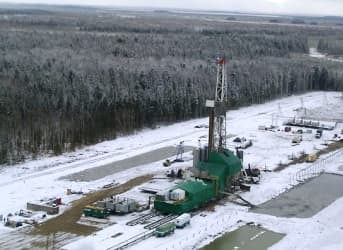Siberia has traditionally conjured up images of fearsome cold and death, first as a place of exile under the Russian Tsars and later under the murderous regime of Lenin’s Bolsheviks.
A great appeal of eastern Siberia for political exile was its extreme remoteness. Originally only reachable by ship, eastern Siberia’s isolation was only somewhat alleviated by the opening of the single-track Trans-Siberian railroad in 1916. Russia’s Pacific coast city Vladivostok is closer to Tokyo and Beijing than Moscow.
Russia’s Pacific seaboard is comprised of the Primorsky Krai, (Primorye), Khabarovsk Krai, Magadan Oblast and Kamchatka. The large offshore island of Sakhalin (Sakhalin oblast, Russia’s largest island) and an archipelago stretching from the southern tip of the Kamchatka peninsula, the Kuriles, complete the Russian Federation’s Pacific possessions.
Instead of being a place of exile, the region is becoming eastern Russia’s hydrocarbon powerhouse, a treasure trove of oil and natural gas. Despite Japan and the Russian Federation having no formal peace treaty ending World War Two and Japan’s insistence that Russia return the four southern Kurile islands, the “Northern Territories,” seized in the waning days of WW2, Moscow and Tokyo are talking about Sakhalin energy exports to Japan.
Related article: Shell, Gazprom Neft Eye Siberia’s Bazhenov as Next Bakken
In 2013 Russian and Japanese leaders met four times and discussed increased Russian energy exports to Japan.
It’s a logical fit between energy producer and market. Since the 11 March 2011 Fukushima nuclear “incident,” Japan has been increasing its oil and gas imports to make up for energy losses spawned by the shutdown of all its nuclear power stations. Sakhalin is a stone’s throw across the Sea of Japan.
At an economic conference in St. Petersburg in June 2013, Russian President Vladimir Putin said, “We see an opportunity in Asia, where gas consumption will double in a decade.”
The month before, members of the Japanese Diet formed a caucus to press for a natural gas subsea pipeline connecting Sakhalin and Hokkaido.
In March 2012 Gazprom completed a feasibility study to construct a liquefied natural gas plant near Vladivostok (“possessor of the east”), Primorye’s administrative capital capable of producing at least 10 million tons of LNG per year. Sakhalin’s hydrocarbon deposits are estimated to contain 14 billion barrels of oil and 2.7 trillion cubic meters of natural gas.
Credit Fukushima for the rapprochement between Japan and Russia. Japan’s 54 NPPs provided roughly 30 percent of its peak electricity generating capacity before the Fukushima catastrophe, and Tokyo has been scrambling ever since to make up the power shortfall produced by mothballing the country’s remaining reactors. It is most unlikely that Japan’s offline NPPs will ever be reconnected to the national grid, given the public’s increasingly strong opposition to nuclear power - in September 2011 70 percent of respondents to an opinion poll conducted by the Mainichi Shimbun newspaper called for a quick or gradual decrease in the number of Japan’s NPPs.
Related article: Ten Trends that will Effect Asia in 2014
In perhaps the clearest sign yet of thawing Japanese-Russian ties despite Tokyo’s previous insistence on resolving territorial issues prior to upgrading fiscal relations, Japan's Prime Minister Shinzo Abe has announced he would meet Russian leader Vladimir Putin on the sidelines of the Sochi Winter Olympics, despite outstanding issues such as the “Northern Territories.” It will be the fifth time the two leaders have met since Abe took office in December 2012. Underlying Abe’s agenda is the fact that Tokyo to make up its energy deficits is reluctant to increase its imports of energy from the turbulent Middle East, even though Tokyo has been granted waivers by Washington for its imports of Iranian energy.
As for the Kuriles, the four “Northern Territories” islands prior to World War Two had a combined population of less than 10,000, whose major occupation was – seaweed gathering.
Accordingly, trading a quartet of foggy, volcanic and earthquake-prone islands in return for a guaranteed source of energy only a few hundred miles from Hokkaido seems to be a pragmatic choice that Abe is increasingly willing to consider.
By. John C.K. Daly of Oilprice.com


















